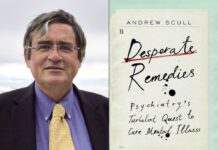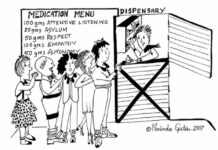The Global Psychosocial Network (GPN) recently released a statement regarding the roles of professionals and volunteers in migrant/refugee camps, detention sites, at the border and in transit zones. GPN represents a network of psychosocial professionals who support and accompany other professionals in the field such as humanitarian workers, healthcare professionals, and social justice activists who are in conflict or disaster zones. The statement was composed by the GPN working group, which is comprised of members ranging from Sarah Kamens, the administration and development chair of GPN, to Judy Roth, GPN’s clinical and education chair.
The statement, which acknowledges the quickly changing political landscape of the world today, aims to outline how providers and volunteers (PAVs) can be helpful in preparing the necessary support for migrants, refugees, and internally displaced populations. The statement also looks at ways in which PAVs can do more harm than good, explores what steps need to be taken to provide a genuine network of support, and offers a set of resources for PAVs and the general population.
“The rapidly shifting political situation, alongside difficult on-the-ground circumstances, has led to uncertainty about the roles that mental health professionals, other healthcare providers, and psychosocial accompaniers (e.g., psychosocial volunteers, social justice / human rights activists, community volunteers, peer specialists, counselors, pastoral carers and/or faith-based workers) can and should take,” Kamens and the co-authors write.
“Despite good intentions, providers and volunteers working with migrants, refugees, and IDPs, are often unaware of the ways in which clinical and psychosocial work can both positively and negatively impact the vulnerable political, legal, and health status of this population.”

The statement first addresses the ways in which PAVs can be helpful. Several roles are outlined for PAVs, including psychosocial accompaniment (mainly, being present for, listening to and observing the experiences of the populations they’re supporting), clinical support (assessment, psychotherapy, case management), testimony and psychological evaluations to prepare individuals for immigration court and training/supervision for other PAVs, trainees and organizations.
Next, the group identifies a variety of ways in which PAVs must prepare for the work ahead of them. It is first recommended that PAVs learn a variety of basic cultural and clinical information. This can include the variety of clinical and medical documents involved in the legal proceedings of migrants, refugees and asylum seekers, how to protect privacy and confidentiality, a number of common reactions to adverse, traumatic events (such as what ongoing trauma looks like, what manifestations of trauma are, the link between trauma and a variety of mental illnesses, and secondary/vicarious trauma), cultural sensitivity and structural competency (i.e. local healing practices, the roles of family and community, the impact of structural violence and discrimination), self-care and risks for unaccompanied minors seeking asylum. They also recommend PAVs formulate a network of support for themselves that can provide space for discussion of their ongoing experiences.
The GPN statement also warns that, despite their best intentions, PAVs can often end up doing more harm than good. One way this occurs is via the development and implementation of interrogation techniques, which are used as a means of torture and are justified by the presence of healthcare and psychosocial professionals. The only role PAVs should play in this scenario, the authors argue, is to advocate for the rights of the victim.
Another way in which PAVs end up harming the people they ostensibly are advocating for is by enacting some sort of behavioral or social control over migrants or refugees. While their intentions may be to reduce psychological distress, the authors argue that the goal should not be to modify the behavior or migrants and refugees, but rather to support their well-being.
While laws such as HIPAA apply to patient confidentiality in the US, the authors urge PAVs to consider that routine clinical documentation can be used both for and against clients, including children, in deportation proceedings. As such, PAVs have a responsibility to be informed about privacy, confidentiality and the use of medical records before they compose them. Lastly, the authors argue that, inadvertently, the very presence of PAVs serves as justification or support for sites or camps’ continued existence.
“The presence of healthcare professionals and humanitarian workers in these contexts is often interpreted as evidence that the sites or camps operate in humane or acceptable ways,” argue the authors.
“PAVs should guard against implicit and explicit use of their work for purposes other than supporting the well-being and personal goals of migrants, refugees, and other displaced persons. In addition, when conducting assessments of and reports about conditions at sites or camps, PAVs should (1) ensure that their findings and reports are not utilized as justification for the continued existence of sites or camps and (2) explicitly recommend discontinuation of detention practices when appropriate.”
The report concludes by offering steps to be taken, as well as a list of resources. The authors encourage PAVs to abide by the principle of beneficence and nonmaleficence, to inform asylum seekers about how the information they provide can be used, to create spaces of empowerment, respect, and mutual solidarity, to set aside time for self-care and to take steps to prepare for their work as outlined above.
As for resources, the authors provide links to the Global Psychosocial Network Resource Library, the Psychologists for Social Responsibility (PsySR) Asylum Project, the Center for Victims of Torture, Human Rights First, Headington Institute, #Stand with Immigrants Mental Health Evaluation for Asylum Seekers, Pacifica Graduate Institute Forensic Psychological Evaluations for Immigration Court, the National Latina/o Psychological Association’s Guidelines for Mental Health Professionals Working with Unaccompanied Asylum-Seeking Minors, the Center for Work with Psychotrauma and Peace, the US Office for Victims of Crime Vicarious Trauma Toolkit, and a number of journal and news articles on the role of mental health professionals in political asylum processing, the psychological evaluation of asylum seekers as a therapeutic process, the stories of kids who crossed the border and psychosocial accompaniment.
****
Kamens, S., Pelton-Cooper, M., Olson, B., Tauber, C.D., Long, J., Roth, J., Kanda, M. A., Paranamana, N., & Morrissey, M.B., (2018). Statement on the Roles of Mental Health, Psychosocial, and other Healthcare Professionals and Volunteers in Migrant/Refugee Camps, Detention Sites, Border Areas, and Transit Zones [GPN Statement]. Retrieved from http://www.globalpsychosocial.org/pilot-project/gpn-statement/?fbclid=IwAR2jbUBK4DNYElsehkdWXX-qqTzLxiMBOlz1R4WKid3w4hmooY8nwpf1Bao















I am not sure how to take this. What about kapos in the Concentration Camps? There are times when a person in a system must simply say no and walk away. Hannah Ardent talked about the banality of evil. This occurs in ANY system where basic human rights are violated. Dr Mengle and the Ravensbrook Camp.
Report comment
As for resources, the authors should provide links to http://www.google.com/search?q=migrant+children+forced+psychiatry
The leopard cannot change its spots, the tiger cannot change its stripes.
“To achieve world government, it is necessary to remove from the minds of men their individualism, loyalty to family tradition, national patriotism, and religious dogmas.” “We have swallowed all manner of poisonous certainties fed us by our parents, our Sunday and day school teachers, our politicians, our priests….The reinterpretation and eventual eradication of the concept of right and wrong which has been the basis of child training, the substitution of intelligent and rational thinking for faith in the certainties of old people, these are the belated objectives …for charting the changes in human behavior.” Brock Chisholm, 1959 Humanist of the Year and former head of World Health Organization, in the February 1946 issue of Psychiatry
Psychiatry is a leading edge of this operant-reconditioning program. People are taught that older systems of values are outmoded, in light of “scientific advances.” when elites fashion and impose a New World ORDER, they naturally need a way to classify the recalcitrant citizens and the rebellious and the independent. So they use the word DISORDER.
Report comment